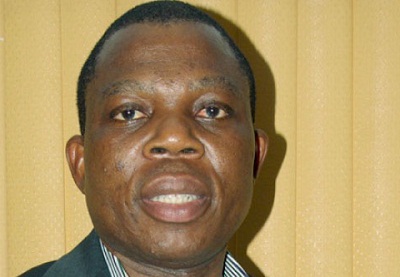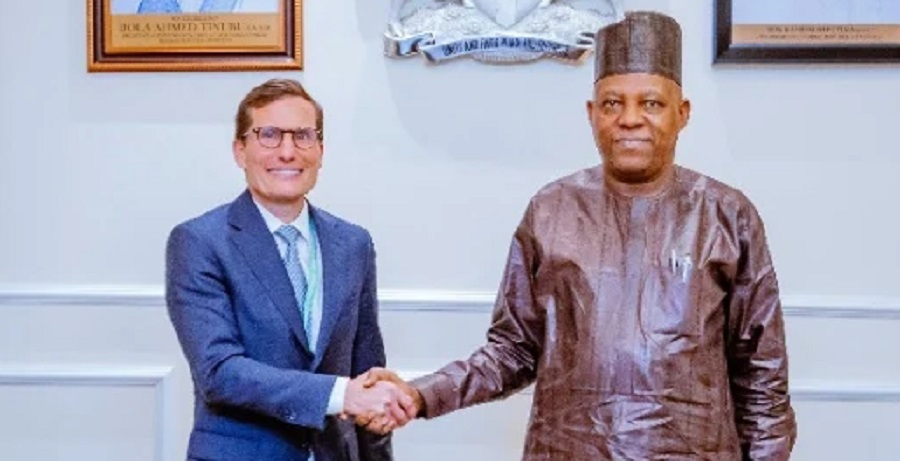E-Business
7 Benefits to Nigerians from Using Technology in 2014

1 It is not true that there are no jobs. The truth is that there are jobs but most Nigerian graduates lack appropriate skills to add value to the global ecosystem. The current university education curricula are mostly outdated and cannot help the graduate in job placement without extra industry-required skills. The focus of the graduates is to acquire certificate or degree not Skills that will help him to be useful in the industry. Therefore for Nigerians who need a job or want to change his or her job should take the 7 skills of fortune we identified above seriously.
2 Digital Government: Government should use technology by automating a lot of its activities that are currently been done manually. This will bring down the cost of governance substantially. Also things like taxation, business registration should be digitize.
3 SETTING UP CYBER SECURITY COMMNAD CENTRE (CSCC): As at today Nigeria lives in a house with its doors and windows wide open for foreign hackers to come in and steal its information. There is no standing national CYBER ARMY OR WARRIOR on the ground that can defend Nigeria interest at the speed of light. The time has come for Nigeria federal government to set up a cybersecurity command centre. Cyber war is more difficult to win than the conventional war because the enemies are faceless and virtual. They are everywhere without been seen!
4 SMART CITY: Federal government can make Abuja, Lagos and Port Harcourt and other sensitive cities in Nigeria smart cities. This will combat terrorism and make investors’ confidence to remain solid in the commercial axis of Nigeria.
5 BIOMETRICS REGISTRATION OF ALL CITIZENS: Government can save a lot of money by doing biometrics registration in the country. Biometrics registration will help government agencies address terrorism, help weed out fraud in the financial system by tracing sources and destinations of illicit monies, sanitise the banking system and help citizens to access bank loans. The biometrics registration should be used for future election. This will solve the problem of election rigging
6 E-LEARNING TO THE RESUCE OF 80% OF THE YOUTHS: NUC should free the e-learning space to accommodate the 80% of Nigerian youths that are yearly denied university admission due to lack of space in the traditional brick and mortal universities. With e-learning, these youths that will otherwise end up as touts or at best political-dogs or thugs of politicians can have some chance of success in life if they can study at home. The argument that the quality of graduates who study at online universities will be watered down in Virtual universities does not hold water because the market will determine at the end of the day which among the graduates are suitable for employment.
7 VIRTUAL ALIEN: If government adopt this strategy and build a framework to make it happen we can get over 1million Nigerian unemployed graduates to work abroad without leaving the shores of Nigeria using the power of technology. This will reduce the graduate unemployment and social friction that leads to terrorisms and suicide bombing. Everything is possible …
E-Business
Visa to Establish Data Centre in Nigeria to ‘Boost Digital Economy’

Visa, global payment services giant, has announced plans to establish a data centre infrastructure in Nigeria.

Andrew Torre, Visa’s regional president for central and eastern Europe and Vice-President Kashim Shettima
According to a statement by Stanley Nkwocha, senior special assistant to the president on media and communications (office of the vice-president) on Friday, Andrew Torre, Visa’s regional president for central and eastern Europe, the Middle East, and Africa, spoke during a courtesy visit to Vice-President Kashim Shettima at the presidential villa in Abuja.
“This is in addition to its investments of over $1 billion in the country, including a substantial technological partnership with @moniepoint to foster digital payment solutions, a $200 million investment in Interswitch, and a partnership with @thriveagric to empower smallholder farmers and enhance food security in Nigeria,” the statement reads.
During the meeting, Torre said the plan to establish the data centre infrastructure aims to bring new technologies into the Nigerian market that would bolster the nation’s growing digital economy.
“Visa has been making investments and will continue to make these investments in Nigeria,” he said.
Responding, Shettima welcomed Visa’s expansion efforts, assuring the delegation that the partnership between Visa and the Nigerian government would continue to flourish.
The vice-president commended the company for investing in ThriveAgric, noting that President Bola Tinubu’s administration is deeply committed to repositioning the agriculture sector, which remains a top priority in its 8-point agenda.
“Nigeria is where the action is. Of the 10 fintechs in Africa, about eight are in Nigeria, with moniepoint as the newest addition,” Shettima said.
“Agriculture is key to the 8-point agenda of the present administration. President @officialABAT is really keen on repositioning the agriculture industry here, and we have to invest in technology, we have to invest in modernisation.”
On January 23, Moniepoint, a Nigerian fintech company, announced it secured investment from Visa to support the growth of small and medium enterprises (SMEs).
Andrew Torre, Visa’s regional president for central and eastern Europe and Vice-President Kashim Shettima
E-Business
FCTA Approves N242.8m for Microsoft 365 Licence to Digitise FCT-IRS

Federal Capital Territory Administration (FCTA) has approved N242.8m for the procurement of a Microsoft 365 licence for its Internal Revenue Service (FCT-IRS) as part of efforts to digitise the service’s operations.

Mr Michael Ango, acting executive chairman of FCT-IRS, disclosed this after the FCT Executive Committee meeting chaired by Mr Nyesom Wike, the minister of FCTA, in Abuja on Wednesday.
Ango said that the FCTA was making significant investments in technology to enhance revenue generation and collection.
“So, this is also one of those investments in technology that the FCT is undertaking.
“The licence, if procured, will enhance our ability to move most of our manual processes into automated processes.
“It will enhance our ability to communicate within our offices,” he said.
The executive chairman added that the move would also reduce the use of paper and ensure better record-keeping through the storage of information and documents in the cloud.
According to him, “The licence will essentially enhance our operations and assist us in generating revenue for the development of the FCT under Wike’s leadership.”
E-Business
Rack Centre Hosts Olla Systems’ Private Cloud Infrastructure

Rack Centre, West Africa’s Tier III Carrier and Cloud neutral data centre, has welcomed Olla Cloud Service, a new private cloud service by Olla Systems Limited, a leading provider of innovative technology solutions, to its facility.

Hosting at Rack Centre, Olla Cloud Service runs on a state-of-the-art, cloud-enabled infrastructure for enterprise applications across diverse platforms, including mission critical application, web applications as well as containerised applications using Kubernetes.
Lars Johannisson, CEO, Rack Centre, welcoming Olla Systems, noted that the partnership with Olla Systems Limited would reflect the company’s commitment to providing African businesses with high- quality cloud computing services.
He noted that Olla Systems would enjoy Rack Centre’s 13.5MW data centre campus facility, designed to meet the highest international standards and offering scalable solutions to Hyperscalers, Enterprises, and Cloud service providers.
As part of its commitment to sustainability, the facility is equipped with energy-efficient systems, advanced cooling technologies to mitigate environmental impact and an optimally-designed feature to handle high-density workloads with precision.
According to Johannisson, “With Olla Cloud Service hosting at Rack Centre, clients will experience fast performance and low latency, enabling businesses in Africa to access world-class cloud computing services within a secure and compliant local infrastructure.”
Also speaking, Olusola Adenuga, chief executive officer, Olla Systems Limited, expressed enthusiasm about hosting at Rack Centre, noting that Olla Cloud remains a groundbreaking private cloud solution for businesses.
While highlighting the benefits of the partnership between Rack Centre and Olla Systems, Adenuga disclosed that “subscribing to Olla Cloud Service is cost-effective to customers because of its local currency payment advantage.”
She also noted that the partnership between the duo, provides businesses the opportunity to meet regulatory requirements of data residency, while enjoying world-class infrastructure as a service (IaaS) locally.
“Other benefits of hosting with Olla Cloud include: 24/7 support, unparalleled performance, scalability and agility.” she added.

 Broadcasting2 days ago
Broadcasting2 days agoPublic Outrage, Legal Threats as Abuja Council Demands N500, 000 as TV Levy

 E-Financial2 days ago
E-Financial2 days agoFIRS Partners Flutterwave for Digital Payment Collection

 Telecom2 days ago
Telecom2 days agoNigeria Charts New Course to Bridge Gender Digital Divide at UN’s CSW69

 General News2 days ago
General News2 days agoNIN Enrolment Hits 117.3m – NIMC

 E-Financial2 days ago
E-Financial2 days agoZuriel Oduwole, Sterling One Foundation, and Sanwo-Olu Champion Gender Equality and Youth Empowerment

 E-Financial2 days ago
E-Financial2 days agoBOI Launches N10Bn GLOW Fund for Female Entrepreneurs

 News2 days ago
News2 days agoFG Invests N2.5Bn in Satellite Surveillance System to Revolutionise Mining Sector

 News2 days ago
News2 days agoTinubu Appoints Olukayode Gregory Pioneer Registrar of New Federal University



















